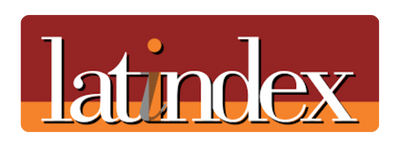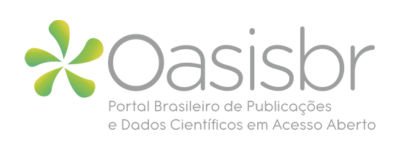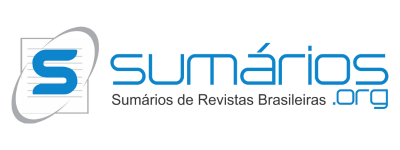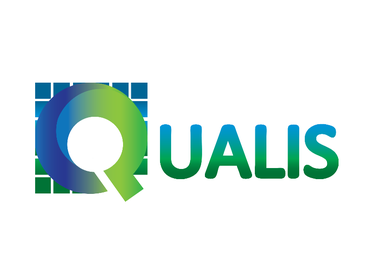The Use of Informal Spaces in the Formation of New Teachers
Experiences and Lived Experiences
Visualizações: 672DOI:
https://doi.org/10.56579/rei.v2i3.50Keywords:
Non-formal spaces, eacher training, Meaningful learningAbstract
Education is increasingly confirmed as a tool for the holistic development of the individual, which is why it has always been studied in its subtleties and methodologies. In this sense, one of the successful practices is the use of non-formal spaces. Therefore, in this paper, we revisit this issue with Pedagogy students in Manaus, aiming to discuss the possible theoretical and practical knowledge regarding teaching in non-formal spaces through the reading and analysis of scientific productions that address this discussion, as well as an understanding of the emerging situations of contact with environments external to the university. The study's approach was phenomenological, focusing on how students perceive this alternative work environment, and since we were working with impressions and subjective instances, the approach was qualitative, although we presented the data in percentages. The research had a descriptive nature, and 24 students participated in the curricular component "Education in Non-Formal Spaces." The data collected were organized into categories and presented to the students themselves, followed by discussions on why such recurring issues appeared. The results are displayed in a table, followed by descriptive and reflective analysis.
Downloads
References
BRASIL. Lei nº 9.394, de 20 de dezembro de 1996. LDB: Lei de Diretrizes e Bases da Educação Nacional, que estabelece as diretrizes e bases da educação nacional. nº 13. 10. ed. Brasília, DF: Câmara dos Deputados, 1996.
________. Constituição. Constituição: República Federativa do Brasil. Brasília, DF: Senado Federal, 1988.
CUNHA, Ana Maria de Oliveira. Ensino de Ecologia em espaços não formais. In: III CLAE e IXCEB, 10 a 17 de setembro de 2009. Anais... São Lourenço, MG, 2009.
FONSECA, Luiz Almir Menezes. Metodologia científica ao alcance de todos. Manaus: Editora Valer, 2010.
GHANEM, Elie.; TRILLA, Jaume. Educação formal e não-formal: pontos e contrapontos. São Paulo: Summus, 2008.
GOHN, Maria da Glória. Educação não-formal, participação da sociedade civil e estruturas colegiadas nas escolas. Ensaio: aval. pol. públ. Educ., Rio de Janeiro, v.14, n. 50, p. 27-38, jan./mar. 2006. DOI: https://doi.org/10.1590/S0104-40362006000100003
JACOBUCCI, Daniela Franco Carvalho. Contribuições dos espaços não-formais de educação para a formação da cultura científica. EM EXTENSÃO, Uberlândia, v. 7, 2008. DOI: https://doi.org/10.14393/REE-v7n12008-20390
NEGRÃO, Felipe da Costa. O ensino de língua portuguesa em espaços não formais: sequências didáticas e a cultura amazônica na educação infantil. In: SOUSA, Ivan Vale de. (Org.). Sequências Didáticas no Ensino de Línguas: Experiências, Reflexões e Propostas. Jundiaí: Paco Editorial, 2018. p. 105-118.
NEGRÃO, Felipe da Costa.; MORHY, Priscila Eduarda Dessimoni.; AMORIM NETO, Alcides de Castro.; FACHÍN-TERAN, Augusto. Possibilidades para o ensino e aprendizagem da matemática no Bosque da Ciência (INPA). In: 6º SIMPÓSIO DE EDUCAÇÃO EM
CIÊNCIAS NA AMAZÔNIA, 2016, Manaus. Anais... Manaus: UEA Edições, 2016. p. 01- 10.
NEGRÃO, Felipe da Costa.; MORHY, Priscila Eduarda Dessimoni. A inserção da disciplina de educação em espaços não formais no curso de pedagogia. REAMEC, v. 7, p. 1-16, 2019. DOI: https://doi.org/10.26571/reamec.v7i3.9337
NEGRÃO, Felipe da Costa.; RAMOS, Érika da Silva.; SOUZA, Agda Monteiro. Transversalidade na educação psicomotora: desenvolvendo à docência em espaços não formais. In: III CONGRESSO NACIONAL DE EDUCAÇÃO, 2016, Natal. Anais... Natal: Realize Eventos e Editora, 2016. p. 01-10.
NEGRÃO, Felipe da Costa.; REIS, Andreza Rayane Holanda. A cultura amazônica e o ensino de geografia no Centro Histórico de Manaus (AM). In: I CONGRESSO NORTE NORDESTE DE EDUCAÇÃO, 2017, Fortaleza. Anais... Campina Grande: Editora Realize, 2017. p. 147-159.
MARANDINO, Martha. Educação em Museus de História Natural: Possibilidades e Desafios de um Programa de Pesquisa. Enseñanza de las Ciencias, Número Extra, 2005.
Downloads
Published
How to Cite
Issue
Section
License
Copyright (c) 2021 Journal of Interdisciplinary Studies

This work is licensed under a Creative Commons Attribution 4.0 International License.
The Journal of Interdisciplinary Studies adopts the Creative Commons Attribution 4.0 International License (CC BY 4.0), which allows for sharing and adapting the work, including for commercial purposes, provided proper attribution is given and the original publication in this journal is acknowledged.













